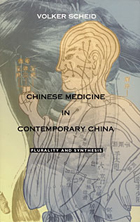
Scheid, a medical anthropologist and practitioner of Chinese medicine in practice since 1983, has produced an ethnography that accepts plurality as an intrinsic and nonreducible aspect of medical practice. It has been widely noted that a patient visiting ten different practitioners of Chinese medicine may receive ten different prescriptions for the same complaint, yet many of these various treatments may be effective. In attempting to illuminate the plurality in Chinese medical practice, Scheid redefines-and in some cases abandons-traditional anthropological concepts such as tradition, culture, and practice in favor of approaches from disciplines such as science and technology studies, social psychology, and Chinese philosophy. As a result, his book sheds light not only on Chinese medicine but also on the Western academic traditions used to examine it and presents us with new perspectives from which to deliberate the future of Chinese medicine in a global context.
Chinese Medicine in Contemporary China is the product of two decades of research including numerous interviews and case studies. It will appeal to a western academic audience as well as practitioners of Chinese medicine and other interested medical professionals, including those from western biomedicine.
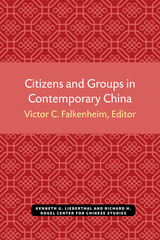
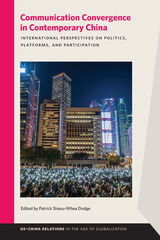
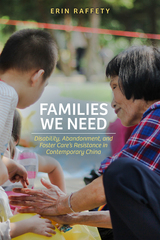
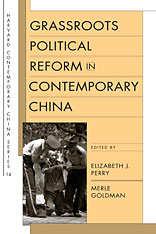
Observers often note the glaring contrast between China's stunning economic progress and stalled political reforms. Although sustained growth in GNP has not brought democratization at the national level, this does not mean that the Chinese political system has remained unchanged. At the grassroots level, a number of important reforms have been implemented in the last two decades.
This volume, written by scholars who have undertaken substantial fieldwork in China, explores a range of grassroots efforts--initiated by the state and society alike--intended to restrain arbitrary and corrupt official behavior and enhance the accountability of local authorities. Topics include village and township elections, fiscal reforms, legal aid, media supervision, informal associations, and popular protests. While the authors offer varying assessments of the larger significance of these developments, their case studies point to a more dynamic Chinese political system than is often acknowledged. When placed in historical context--as in the Introduction--we see that reforms in local governance are hardly a new feature of Chinese political statecraft and that the future of these experiments is anything but certain.
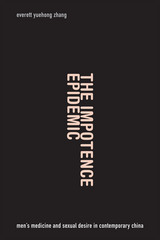

Making National Heroes is an ethnography on the making of national heroes in the commemoration of the Second World War in contemporary China. Foregrounding the lived experience of men and women who participate in commemorative activities, it theorizes how masculinity and nationalism entangle in recollecting war memories. Taking the line of feminist inquiry, this anthropological study aims to capture the significance of creating exemplars that are the realization of hegemonic masculinities. It adds a gendered perspective to studies on the exemplarist moral theory and theorizes exemplary men’s cross-culture significance in defining masculinities. Researchers in the fields of critical masculinity studies, anthropology, feminist methodology, China studies, and war memories will be interested in this book.
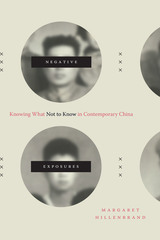
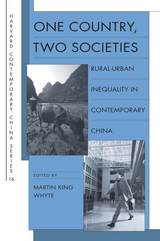
This timely and important collection of original essays analyzes China’s foremost social cleavage: the rural–urban gap. It is now clear that the Chinese communist revolution, though professing dedication to an egalitarian society, in practice created a rural order akin to serfdom, in which 80 percent of the population was effectively bound to the land. China is still struggling with that legacy. The reforms of 1978 changed basic aspects of economic and social life in China’s villages and cities and altered the nature of the rural-urban relationship. But some important institutions and practices have changed only marginally or not at all, and China is still sharply divided into rural and urban castes with different rights and opportunities in life, resulting in growing social tensions.
The contributors, many of whom conducted extensive fieldwork, examine the historical background of rural–urban relations; the size and trend in the income gap between rural and urban residents in recent years; aspects of inequality apart from income (access to education and medical care, the digital divide, housing quality and location); experiences of discrimination, particularly among urban migrants; and conceptual and policy debates in China regarding the status and treatment of rural residents and urban migrants.
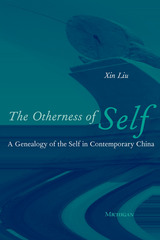
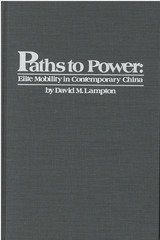
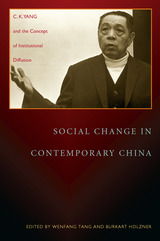
Social Change in Contemporary China offers a wide-ranging examination of Chinese institutional change in areas of education, religion, health care, economics, labor, family, and local communities in the post-Mao era. Based on the pioneering work of sociologist C. K. Yang (1911–1999), and his institutional diffusion theory, the essays analyze and develop the theory as it applies to both public and private institutions. The interrelationship of these institutions composes what Yang termed the Chinese “system,” and affects nearly every aspect of life. Yang examined the influence of external factors on each institution, such as the influence of Westernization and Communism on family, and the impact of industrialization on rural markets. He also analyzed the impact of public opinion and past culture on institutions, therein revealing the circular nature of diffusion. Perhaps most significant are Yang’s insights on the role of religion in Chinese society. Despite the common perception that China had no religion, he uncovers the influence of classical Confucianism as the basis for many ethical value systems, and follows its diffusion into state and kinship systems, as well as Taoism and Buddhism.
Writing in the early years of Communism, Yang had little hard data with which to test his theories. The contributors to this volume expand upon Yang’s groundbreaking approach and apply the model of diffusion to a rapidly evolving contemporary China, providing a window into an increasingly modern Chinese society and its institutions.
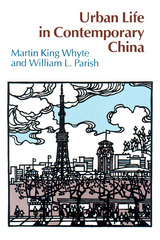

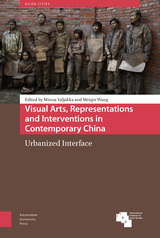
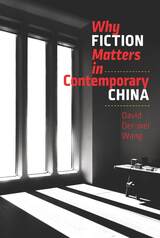
Contemporary discussions of China tend to focus on politics and economics, giving Chinese culture little if any attention. Why Fiction Matters in Contemporary China offers a corrective, revealing the crucial role that fiction plays in helping contemporary Chinese citizens understand themselves and their nation. Where history fails to address the consequences of man-made and natural atrocities, David Der-Wei Wang argues, fiction arises to bear witness to the immemorial and unforeseeable.
Beginning by examining President Xi Jinping’s call in 2013 to “tell the good China story,” Wang illuminates how contemporary Chinese cultural politics have taken a “fictional turn,” which can trace its genealogy to early modern times. He does so by addressing a series of discourses by critics within China, including Liang Qichao, Lu Xun, and Shen Congwen, as well as critics from the West such as Arendt, Benjamin, and Deleuze. Wang highlights the variety and vitality of fictional works from China as well as the larger Sinophone world, ranging from science fiction to political allegory, erotic escapade to utopia and dystopia. The result is an insightful account of contemporary China, one that affords countless new insights and avenues for understanding.
READERS
Browse our collection.
PUBLISHERS
See BiblioVault's publisher services.
STUDENT SERVICES
Files for college accessibility offices.
UChicago Accessibility Resources
home | accessibility | search | about | contact us
BiblioVault ® 2001 - 2024
The University of Chicago Press









